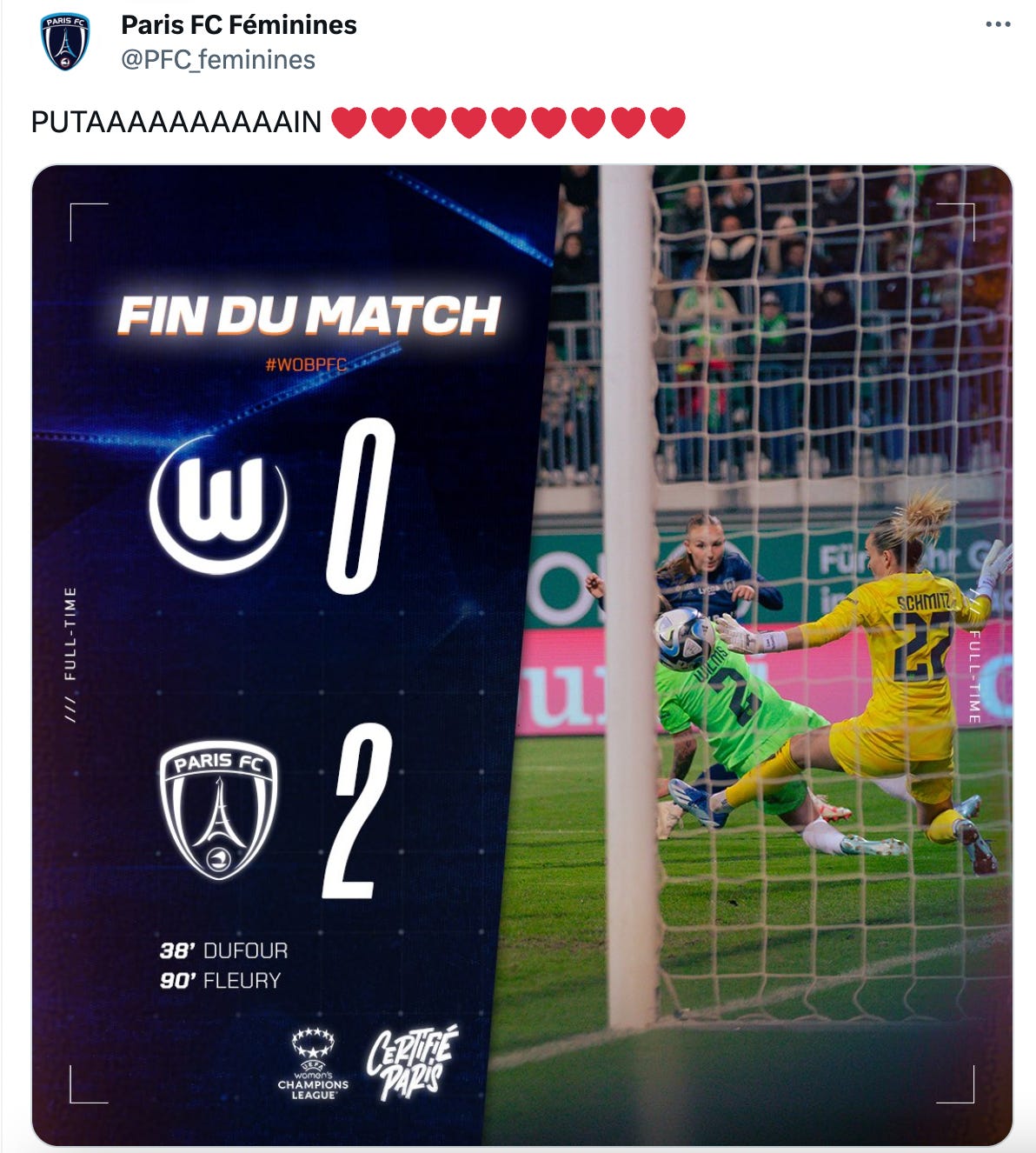Was it unfair that Manchester United did not reach the UWCL group stage?
Manchester United failed to make the Champions League group stage this week, losing 3-1 to Paris Saint-Germain in the second leg of their qualifier. The 4-2 aggregate result meant that only one English team will be in the Champions League group stage this season. Following the match, Marc Skinner railed against Manchester United’s misfortune of drawing the second placed French team and even having to go through qualification.
“We deserve to be at this level. There are teams that are going through that are not good enough. It’s crazy that we have to play PSG at this level.”
“I hope something is changed because we want the best teams in the Champions League, not just a spread of some average teams.”
There are a number of different frustrations in these quotes. The annoyance of drawing PSG, the fact that Manchester United even had to go through qualifying, and the perception that the teams who did get through qualifying are average. Is any of this fair?
Let’s start with drawing PSG. Manchester United were attempting to reach the UWCL group stages through what UEFA calls the ‘League Path’. This is for sides who do not win their respective leagues but based on their league coefficient (effectively how UEFA ranks the leagues based on how well they have done in the UWCL) are eligible to attempt to qualify for the Champions League. United entered in Round 2 by virtue of finishing second in the WSL, alongside second placed teams from Germany, France, Spain, Sweden, and the Czech Republic.
Teams who have progressed through Round 1 of the League Path (the point where Arsenal exited the competition) join the teams entering in Round 2 and are split into two groups based on their individual coefficient. Your team’s coefficient is improved by how well you perform in UEFA competitions and herein lies Manchester United’s specific problem. They had never qualified for the Champions League before, so their coefficient was the second lowest in the league path draw. This is because they are only just entering their sixth season of existence. They were always going to have a high chance of drawing a tough team in qualifying because they simply have zero pedigree within women’s football.
Of course, this would not matter if United did not have to go through qualifying which was Skinner’s second point. Currently the UWCL has four automatic group stage spots which go to the champions of the Spanish, French and German leagues plus the winners of the previous year. As Barcelona won the UWCL and Liga F, Chelsea got the fourth spot as winners of the WSL. This is a much smaller proportion than what the men’s Champions League opens up for qualifying. 75% of the teams participating in the UWCL get there through qualification, compared to 18.75% of teams in the men’s Champions League.
Unlike the men’s Champions League, the women’s Champions League significantly prioritises teams from leagues outside of the traditional big four. This is where the more theoretical nature of Skinner’s complaint comes in. The claim that average teams reached the group stage was presumably a snipe at sides like Ajax and Brann who qualified (having played three matches!) by virtue of being the Dutch and Norwegian champions respectively.
Women’s football is in significant flux. The speed at which teams are improving is far beyond the bounds of a governing body like UEFA being able to accurately reflect who the best sides are. Even in the time since the group stage became part of the format, the growth of football in Italy for example has changed the perception of the European landscape. Equally, it is bold of Skinner to assume that his Manchester United team were better than the teams that qualified. The only European fixtures his side have ever played were against PSG over the past two weeks. Who knows how they might have fared against those supposedly average teams, if they had come up against them?
There will almost certainly be a shift towards more teams from the ‘big’ leagues getting automatic qualifying spots in the coming years, and consequently a UWCL that mirrors the UCL. It is the unfortunate long term reality of the women’s game, where the biggest men’s clubs have become dominant. But the development of European women’s football on a broader basis is equally, if not more, important than Manchester United reaching the group stage. The success of Benfica in the UWCL in recent years is testament to the leaps and bounds clubs and leagues can take, and the surprises they can cause.
Those unexpected moments are part of what makes cup competitions fun. The success of Paris FC in qualifying has already been one of the moments of the season, as they knocked out two of last season’s semi-finalists, Arsenal and Wolfsburg, to make the group stage. Cup competitions do not need to be fair - they are about who wins on the day. An attempt at a genuine assessment of teams’ ability is part of why we have league football.
Manchester United will make the group stages of the UWCL at some point. It might come about because they win the WSL. It might come about through winning their qualifying matches. It might come about because UEFA end up giving them an automatic spot from finishing second or third in the WSL. If it is the latter, hopefully it will be as part of an expanded group stage that still gives teams from other leagues the opportunity to compete. Because simply being an English club, or a historic club, or a rich club, should not automatically give you a pass to the very top. Perhaps if Manchester United Women had existed for a little bit longer, they might understand that.



